Quantitative Post-Translational Modification Service
MtoZ Biolabs provides comprehensive Quantitative Post-Translational Modification Service that integrates advanced LC-MS/MS platforms with optimized labeling and label-free quantification strategies. Our service helps researchers systematically explore the dynamics of protein regulation and gain meaningful biological insights from complex samples.
Post-translational modifications, commonly referred to as PTMs, are covalent and generally enzymatic modifications of proteins that occur after translation. These chemical alterations play critical roles in regulating protein structure, stability, localization, and function. Phosphorylation, acetylation, methylation, ubiquitination, glycosylation, and sumoylation are among the most common PTMs found in eukaryotic systems. By fine-tuning protein activities, PTMs are central to nearly every aspect of cellular biology, including signal transduction, metabolism, and gene expression.
Quantitative analysis of post-translational modifications enables researchers to measure dynamic changes in modification abundance across physiological or pathological conditions. It allows identification of regulatory networks and mechanisms underlying disease progression and therapeutic responses. With advancements in high-resolution mass spectrometry, quantitative PTM analysis has become an indispensable approach in modern proteomics research.
Services at MtoZ Biolabs
MtoZ Biolabs has established a robust quantitative proteomics platform that enables precise identification and quantification of diverse post-translational modifications. Our workflows combine enrichment, high-resolution liquid chromatography, tandem mass spectrometry, and bioinformatics data processing to deliver accurate and reproducible results.
1. Label-Free-Based Quantitative PTM Service: Suitable for comparative studies without isotopic labeling, enabling quantification based on peptide ion intensity across runs.
2. iTRAQ/TMT-Based Quantitative PTM Service: Enables multiplexed quantification of up to 16 samples simultaneously with high accuracy and reproducibility.
3. SILAC-Based Quantitative PTM Service: Applicable for cell-based experiments, providing metabolic labeling and accurate quantification.
4. DIA/SWATH-Based Quantitative PTM Service: Utilizes DIA or SWATH acquisition with PTM-enriched samples to achieve comprehensive, unbiased, and highly reproducible quantification across multiple samples.
Our quantitative post-translational modification service covers a wide range of regulatory modifications, including but not limited to phosphorylation, acetylation, methylation, ubiquitination, SUMOylation, glycosylation, and redox-related modifications. Through flexible experimental design and standardized data analysis, MtoZ Biolabs delivers quantifiable modification profiles with high reproducibility.
Analysis Workflow
1. Sample Preparation: Proteins are extracted and digested into peptides, followed by enrichment of specific modified peptides using affinity or chemical-based methods.
2. LC-MS/MS Acquisition: Peptides are analyzed using high-resolution LC-MS/MS systems such as Orbitrap or timsTOF, providing accurate mass and fragmentation spectra.
3. Quantification and Data Processing: Quantitative data are obtained through label-free, isotopic labeling, or DIA-based workflows, ensuring precise normalization and statistical reliability.
4. Bioinformatics and Functional Annotation: Identified modified peptides are mapped to proteins and annotated for biological pathways, molecular functions, and regulatory interactions.
5. Report Generation: Quantitative results and visualized statistical plots are provided, facilitating data interpretation and publication readiness.
Figure 1. Workflow for Quantitative Post-Translational Modification Analysis
Service Advantages
1. Advanced Analytical Platform
MtoZ Biolabs is equipped with state-of-the-art high-resolution mass spectrometry platforms, including Orbitrap, timsTOF, and Triple Quadrupole systems. Combined with stable and efficient liquid chromatography separation, these instruments enable highly sensitive detection of low-abundance modified peptides and precise quantitative analysis.
2. Experienced Technical Team
Our research and technical team has extensive expertise in quantitative post-translational modification (PTM) analysis, covering both experimental execution and data interpretation. The team is proficient in multiple quantification strategies such as TMT, SILAC, DIA, and Label-Free, allowing us to design the most suitable analytical workflows based on research objectives and ensure scientific rigor and reproducibility.
3. Flexible and Customized Solutions
MtoZ Biolabs provides flexible experimental design and analytical options tailored to specific research needs. Whether the goal is quantifying a single type of modification or performing integrated multi-PTM analysis, we deliver customized solutions that offer targeted scientific support and meaningful research outcomes.
Applications
1. Investigation of cellular signaling pathways and dynamic protein regulation through phosphorylation and ubiquitination quantification.
2. Analysis of epigenetic regulation involving histone acetylation and methylation states.
3. Comparative studies of disease versus control samples to identify differential PTM patterns linked to pathogenesis.
4. Evaluation of drug-induced protein modification changes for pharmacodynamic and toxicological research.
5. Systems-level studies of metabolic and stress response networks mediated by PTM regulation.
Sample Submission Suggestions
|
Item |
Requirement |
|
Sample Type |
Protein lysates, cell pellets, or tissue homogenates free of contaminants such as salts or detergents |
|
Protein Quantity |
A minimum of 200 µg total protein per sample is recommended for global PTM profiling. For targeted assays, smaller amounts may be sufficient |
|
Purity and Integrity |
Samples should be free from nucleic acids, lipids, or polymeric substances that may interfere with chromatography or ionization |
|
Buffer Composition |
Preferably in 50 mM ammonium bicarbonate or Tris buffer without SDS or strong denaturants. Avoid glycerol, PEG, or high-salt buffers |
|
Storage and Shipping |
Store samples at –80°C and ship on dry ice. Avoid repeated freeze-thaw cycles. Include a sample information sheet detailing protein concentration, buffer conditions, and sample origin |
|
Special Notes |
If samples require specific enrichment procedures (e.g., phosphopeptide or acetylpeptide enrichment), we can provide a detailed submission guideline, or you may contact our staff for consultation before submission |
Deliverables
1. Comprehensive analytical report summarizing workflow, experimental design, and results
2. Quantitative tables containing identified proteins, modified peptides, modification sites, and relative abundance values
3. Visualization files including heatmaps, volcano plots, and modification distribution statistics
4. Raw and processed LC-MS/MS data files compatible with standard bioinformatics platforms
5. Technical consultation and follow-up data interpretation support
Quantitative analysis of post-translational modifications provides essential insights into dynamic cellular regulation and molecular mechanisms of disease. MtoZ Biolabs combines advanced mass spectrometry technology with standardized quantitative strategies to deliver accurate, reproducible, and publication-ready PTM data. Our expert team is dedicated to supporting your proteomics research from sample preparation to data interpretation. Contact MtoZ Biolabs today to learn how our Quantitative Post-Translational Modification Service can advance your scientific discoveries.








